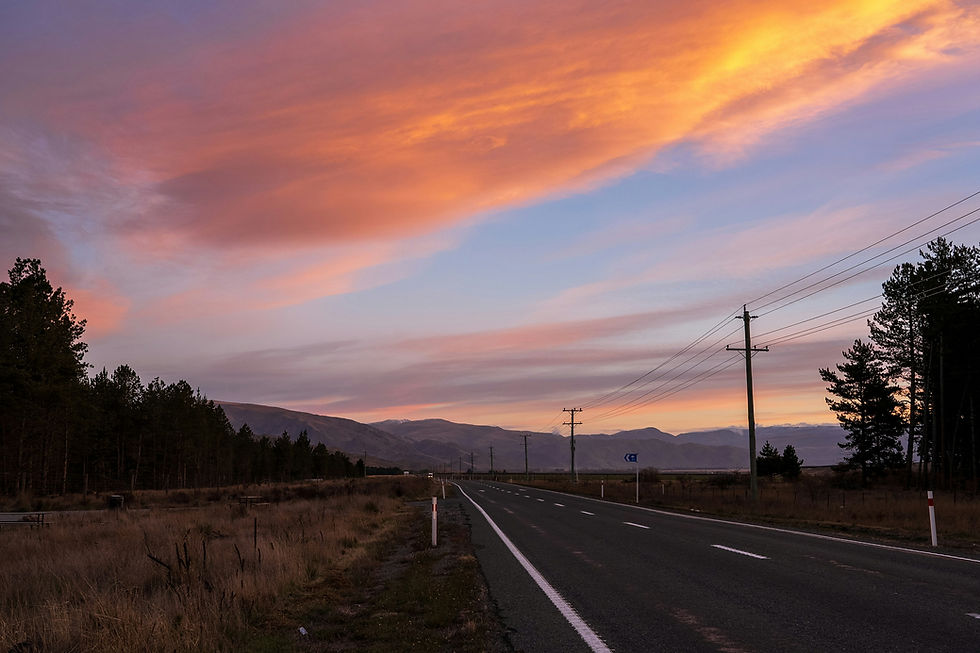Zohran Mamdani: What New York’s mayoral shake-up might be telling us
- Our Words Matter
- Oct 20, 2025
- 3 min read
News from New York rarely feels directly relevant to New Zealand politics. But every so often, a shift there says something about broader undercurrents that may one day reach our shores. The recent rise of Zohran Mamdani - a young, progressive state legislator who has unexpectedly become the frontrunner in the race to be New York City’s next mayor - is one of those moments.
New York’s mayoralty is no small role. It’s the top job in a city of nearly nine million people, with an annual budget that is roughly the size of New Zealand’s entire national budget. From housing and transport to policing and education, the mayor’s reach extends across every part of city life. It’s a position that combines the immediacy of local government with the weight of national responsibility.
Having lived and worked in New York for more than a decade, I came to understand how complex that city is. How it can hold staggering wealth and deep poverty in the same subway car. From Wall Street to the Bronx, I saw the gap between aspiration and opportunity widen year after year. I volunteered at times on Democratic presidential campaigns - like many people did - and came to appreciate how politics in the US is always a contest between hope and hard reality.
Mamdani’s emergence has taken many by surprise. At 33, he represents a new generation of leadership. Younger, more diverse, and unafraid to talk about structural change. He’s the son of Ugandan-Indian immigrants, raised in Queens, with a platform centred on affordability: rent freezes, free public transport, and universal childcare. He talks less about ideology and more about the daily cost of living, which is something many New Yorkers, and lots of New Zealanders, can relate to.
What makes his rise interesting is not just the policies but the mood behind them. People seem tired of being told to be patient. They want politics to deliver something tangible - a home they can afford, a city they can move through, a sense that effort will be rewarded. The same impatience is visible here. Across New Zealand, people are working hard but feeling stuck. The cost of living, housing insecurity, and service strain are not just economic issues; they’re emotional ones. They shape how people feel about fairness, belonging, and whether the system still works for them.
The appeal of candidates like Mamdani lies in their promise to reconnect politics with people’s lived experience. He doesn’t sound like a career politician, and that’s the point. His campaign grew from grassroots networks, not party machines. Whether or not he ultimately wins, his success in reaching this point reflects a broader change in the way citizens engage with politics - more direct, less deferential, and less patient with institutions that seem slow to change.
For New Zealand, that should be both inspiring and instructive. Our political landscape is different, of course - smaller, steadier, more collaborative - but we’re not immune to the same discontent. Voters here, too, are looking for leadership that listens and acts with authenticity. They want politics that feels closer to the kitchen table than the press conference podium.
What’s easy to overlook is that the delivery of big promises is hard work. In New York, as in New Zealand, institutions matter. Governance, capability, and accountability shape whether ambition turns into reality or simply rhetoric. My legal work over the years has shown me that real reform depends not only on bold ideas but also on the infrastructure that supports them. Such as strong systems, clear rules, and people who know how to make things happen.
That’s perhaps the quiet lesson in Mamdani’s story: it’s not just about youthful energy or political disruption. It’s about trust. The belief that government can once again be an instrument of shared good rather than distant administration. Rebuilding that trust requires honesty about what’s possible, humility about what isn’t, and courage to keep trying anyway.
As New York heads toward its mayoral election, I find myself watching less as a former resident and more as a New Zealander who recognises the echoes. The faces and accents may differ, but the questions are familiar: Who do we trust to lead us through change? How do we balance fairness with fiscal sense? And how can we make politics feel like it belongs to all of us again?
We often imagine that global cities are worlds apart from our own. But sometimes, they simply see the future a little sooner. What happens next in New York might, in its own way, offer us a glimpse of what could be stirring here. A reminder that ,when people feel left out, they don’t switch off. They look for new voices.
And that, perhaps, is the most hopeful thing of all.







Comments